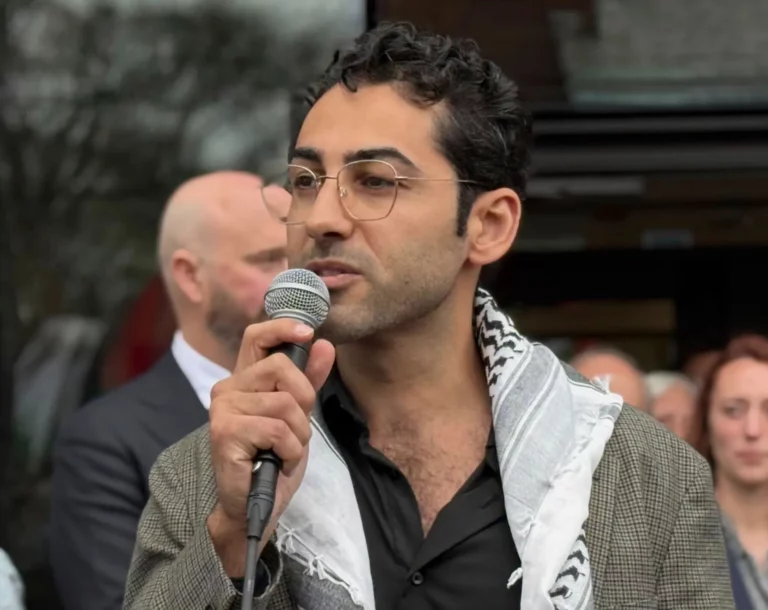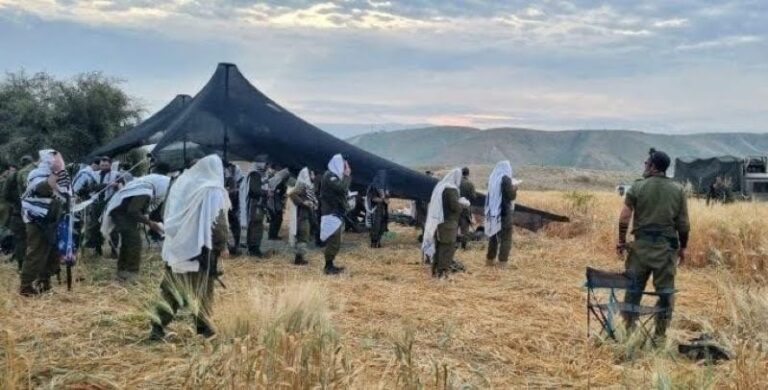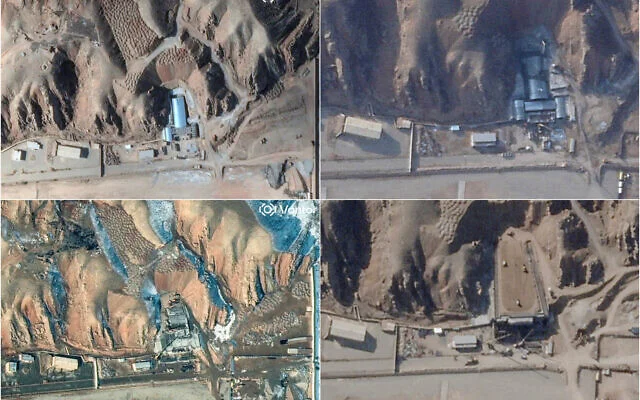It is cause for celebration when an album is released that recaptures the magic of the past, while possessing the energy and cutting-edge musicality of today. The debut of Aish 3, featuring the spectacular joint efforts of Abie Rotenberg, Shlomo Simcha and Doni Gross will no doubt be exuberantly embraced by knowledgeable Jewish Music fans worldwide. For more than two decades, Aish classics have accompanied Klal Yisrael through the milestones of Jewish life. This newest addition to the collection is no different. The twelve selections on Aish 3 offer both deeply emotive and inspiring tracks, as well as rousing, joyful Niggunim. Without doubt, many are sure to become tomorrow’s classics. In addition to the lead vocalists, an eclectic lineup of guest performances graces this production and adds significantly to its flavor. Over two years in the making, Aish 3 bolsters this iconic series and is a tribute to Jewish Music’s vibrant roots. Yes, even today, the fire of inspiration continues to burn brightly.
Behind studio doors, we (JMN) met with this dynamic team to talk about the history of Aish, the evolution of Jewish Music in general, and the more recent efforts in the production of this latest Aish album. Clearly, it was a labor of love that included long hours, many international flights, and a musical adventure of comradery, peppered with hefty doses of laughter. In a candid interview, the three artists shared a glimpse into the process.
JMN: Mazel tov on this momentous achievement! How do you feel knowing that Aish songs have had a profound impact upon so very many people?
Abie: I feel very blessed to have had the privilege of writing songs that have resonated with people. To know that one’s songs are played at a Kumzits, a Chupah, or used by Chazanim to adorn their Tefilos, is very gratifying. The many Dveykus and Journeys albums I’ve been involved in, as well as the first two Aish recordings, contain compositions that many have enjoyed and they in turn have passed them on to their children and grandchildren. Although it has taken many years, I am equally proud of this new third Aish album. I feel that it too, has many wonderful songs that have the potential to uplift and inspire the Jewish Music loving public.
Doni: When the opportunity arose to work with Abie and Shloimie, it felt like a dream come true for me. It’s has been a tremendous honor to be able to present the world with more of the music I grew up with and came to love so much. It has also been humbling for me to work side by side with two of the industry’s greatest veterans. I remember how as a young boy I went out and bought Aish I on cassette. I literally was glued to my tape recorder, listening to the songs, over and over again. As a producer, much of the material that crosses my desk today can be classified as catchy or on trend. However, the experience of working with Abie and Shloimie – cornerstones of classic, timeless Jewish Music – has been priceless.
JMN: The heartfelt influence songs like Habeit, Yedid Nefesh, and Ilan have had across the world is quite amazing. What do you think it is about an Aish song that evokes so visceral a response from Jewish listeners?
Doni: A few months ago, I was sitting with a friend at a Chupah and three Aish songs were played one after the other. They were Mi Adir, Ilan and Birchas Habayis. My friend turned to me and said, “It’s unbelievable that they’ve been singing the same songs for the last twenty years! Can’t they come up with anything new?” But truth be told, these classics remain popular for a reason. They strike a chord with people and they are and perhaps will forever be, associated with important life events and the memories they generate. Indeed, Aish has given us a wonderful soundtrack to capture any experience; from Shul, to Shabbos to Simchos. For example, Yisroel Lamm told me the other day that Mi Adir of Aish Volume I, remains one of the most popular Chupah songs to date.
Shlomo Simcha: Songs like Yedid, Habeit and Ilan are still popular requests at most events. My brother in law, a Rabbi in Florida, led a group on the March of the Living. While visiting the death camps of Europe they sang in unison over the loudspeakers, “Uvechol Zos Shimcha Lo Shachachnu.” This incredibly inspiring song – which expresses that no matter what hardships we’ve traversed as a nation we’ll never forget our loyalties to the Almighty – never fails to elicit the deepest of feelings.
JMN: Can you give your listeners some background on how Aish got started?
Abie: Shlomo Simcha moved to Toronto in 1993 where I had been living for close to a decade. I had already produced several Dveykus and Journeys albums. Shloimie was experiencing wonderful success as a vocalist and was in the process of releasing a second album when we met. We hit it off personally as well as musically and the idea of working together – with the convenience of living in close proximity – made perfect sense. Slowly we gathered material and over time and piano ivories, forged a connection that led to a selection of songs that we were excited to bring to life. The signature sound of Aish Volume I gained it both popular and critical acclaim and it led to a popular second Aish album a few years later. But as is often the case, life can be complicated, and other projects and aspirations put Aish on the back burner. It took the doggedness and determination of Doni Gross to get us back together again. We are so grateful that he did.
Shlomo Simcha: I would just like to add something that I believe helped to create the success of Aish Volume I. And that is the fact that Abie and I had no specific goal or timeline for our first album. No deadlines, no agendas, no commercial considerations. It was all about working on the music. When we talked about our vision for the album, we were determined to do something we would enjoy and feel inspired by. Thankfully, we were pleased to discover that many others felt the same way.
Doni: As a producer I find that many artists today, tend to focus on what people want to hear. They might compromise their own style and preference for what they think the public is clamoring for. The songs may be fun to listen to, but quite often are not easy to sing. In my opinion, music needs to represent something genuine. If the singer can’t connect to the songs, the listeners won’t connect to them either.
Shlomo: Once we had all the material collected, we contacted Mutty Grunberg to serve as our Executive Producer. He enthusiastically encouraged us to move forward quickly and we agreed that Yisroel Lamm would be a wise choice to craft the arrangements. His wonderful orchestrations and creative interpretations of these treasured songs are – as mentioned above – still performed widely to this very day.
JMN: Abie, there have been rumors that you’ve been experiencing some form of writer’s block during the past decade. Is there any truth to that?
Abie: The answer is both yes and no. There has never been an extended period of time in my career during which I did not compose melodies. Some of them are in fact very close to my heart and are featured on the new Aish. I must confess however, that I have been struggling to compose original lyrics in English, as in the Journeys style. There is however good news. During the past year I’ve seen some encouraging success in that area as well and hope to be able to produce another Journeys album at some point in the future.
JMN: There has been palpable excitement building for quite some time over the newest Aish. Now that it has finally arrived, can you give our readers some insight and background into the creation of Aish 3?
Abie: Once we had all determined to go ahead with the project, the process of selecting songs commenced. Doni flew up to Toronto and spent a full day with Shloimie and I at the piano. Musical ideas were listened to, critiqued, modified, massaged etc. This is truly the nitty gritty work necessary for any good album; but probably, the most fun as well.
Doni: But it was more than just that day. We all went through hundreds of clips of Abie’s musical ideas. Some were on his computer or phone. Many however, predated the digital age and were pulled off cassettes that were stored in shoeboxes in his basement. As we combed through the material, we started to narrow down the selections that resonated with all of us. Songs like Lev Tahor and Ani Ma’amin were ready without modification. Others emerged that had a bit more of a contemporary vibe and we worked together to find the sweet spot to build the melody and choose the words. At times we worked an entire day and discarded it all the very next day. At other times we were buoyed by the energy of knowing, we had achieved something special. Our bottom line was always, “Could this song move people?”
Shlomo: The process was truly a creative vortex! There were songs that kept shifting and evolving on us. One fast niggun in particular seemed to be headed in a certain direction when Doni wondered how it would sound if we slowed it down. So he sat at the piano and played it languidly. As we were singing the modified tune over and over again, inspiration struck and I pulled out a siddur saying “I’ve the perfect lyrics for this melody!” Doni stood up and paced the room trying to fit the words to the melody while back at the piano, the opening refrain of the niggun poured right out of Abie onto the piano keys. And that is how the soul-stirring ballad Rachmana came into being.
Abie: I’d like to tell the story behind the song Bayom Hahu. These beautiful words from the Aleinu prayer depict how upon Mashiach’s arrival the entire world will recognize Hashem as King of the World. I don’t know why, but the image of 2 slightly inebriated Irishmen nursing their beers in a pub, entered my mind. Can you imagine their surprise when they observe on CNN the incredible news of the Jewish King’s arrival and how the entire world will recognize his reign and the sovereignty of Hashem over the all mankind! Now what kind of song would these guys sing when they realize that God in Heaven has reappeared on Earth? I doubt it will be a Gerer waltz. More likely a rousing Irish Jig, no? So I crafted a melody with that genre in mind. Of course we weren’t going to settle for anything less than an appropriate Celtic infused arrangement to capture that feel. However, by the time this song was composed, the other eleven songs were recorded and ready to go. Shloimie and I both suggested we leave it for another day, but Doni would have nothing of that. Uplifted by the joyous combination of words and music, he worked tirelessly to collaborate with musicians around the world to find the right sound. It took three recording sessions but finally, the perfect blend of pipes, whistles and an Irish bouzouki to nail it, but nail it he did.
Doni: The song “Veshomru” also has a story. We initially were looking for a slow, moving melody in a minor key. In fact we proceeded to demo, arrange and record a version true to that spirit. However, when Abie and Shloimie arrived in N.Y. for their final recording session, they both said “We don’t feel that Vehshomru is working. Scratch it. Here’s an upbeat, happy Veshomru that will bring in the Shabbos with Simcha!” On the spot we put down some basic musical accompaniment and laid down the vocal tracks. Indeed, who says a Veshomru has to be slow?
Shlomo Simcha : A recurring theme of many of the Niggunim in this project is that of Geulah, redemption. Belief in it is central to our faith and something our generation vitally needs to reinforce. Ani Maamin, Mosai Timloch, Bayom Hahu and Lo Matza all offer hope, chizzuk and positivity. There are a sizable number of fast, rousing numbers…but as always with Abie Rotenberg compositions, deeply emotive and inspiring songs as well.
JMN: Was there a push to modernize or revamp the classic Aish approach? Or was it about staying true to Aish’s roots?
Abie: That is a difficult question to answer. I would have to say that I’m too old to change my spots even if I had an inclination to do so…and I don’t. Nevertheless, I don’t live in a vacuum and am exposed to the music of today at every concert and wedding I attend. Its influence upon me however, is certainly much less than it is upon today’s youth…simply because my ‘girsa d’yankesa’ the sounds I heard growing up, dominate my musical DNA. At the same time, I do enjoy the challenge of breaking new ground and with Doni as a co-producer and arranger; it was much easier to venture a bit out of my comfort zone. I am hopeful that fans of my earlier music will not feel that I’ve strayed too far. I am also optimistic that the youth of today will not feel that the songs are too old-fashioned for their contemporary tastes. There are also two songs on Aish 3 written by sons of mine. Pdeh possesses an old-fashioned simplicity that is deeply moving and hartzig. Keshoshana is a Chupah song of complexity and beauty that draws the heart closer to Hakadosh Baruch Hu as expressed so beautifully by Shlomo Hamelech in Shir Hashirim.
Doni: Aish songs become classics. At the end of the day when people gather together to participate in a kumzits or a shalosh seudos, these are the songs that will be sung over and over again.
Shlomo Simcha: I honestly don’t think there’s anyone in the music industry who can wear as many hats as Doni Gross. Producer, director, arranger, musician, engineer, manager. If only he knew how to make a good cup of coffee his resume would be flawless! But kidding aside, despite his youth he was able to sit in a room with the two of us – who’ve been in the industry for so many years – and challenge us assertively, to coax the very best out of us. He does it with humility, but he’s not a wallflower. He knows how to get what he wants. I urge our audience to look for the depth of his musical genius in the arrangements. The subtle nuances, the gentle thematic patterns and the sweet bridges and introductions he has crafted. It is quite incredible!
JMN: What is the one thing you feel DeG Studios is missing?
Shlomo Simcha: If the opportunity arises, I vote for installing an elevator. Is it even legal to build a recording studio three stories up in Flatbush?
Abie: I’ve been in larger Pop-Up Succahs! I give you a bracha Doni. You should outgrow your current venue before your next project and have ample space for a beautiful Steinway!
JMN: I see you have several guest vocalists on Aish 3. Can you tell us a bit more about who the album features?
Doni: I find it interesting that initially Abie said to me, “This album isn’t about me singing. Let Shloimie do the singing and we’ll bring in some guest stars.” But I was adamant that he needed to sing. Abie’s may not have the cookie cutter Jewish voice, but he is a baal masbir in that he can make the listener feel the interpretation and passion of each song. When a composer writes a niggun, it’s an expression of his neshama. I sense a deep emotional connection that is shared with the audience when Abie sings his compositions. Listening to him in the studio, there was a certain texture to his vocals that moved me to the core in a powerful way. Mingled with the powerful mastery of Shlomo Simcha’s voice, it is a unique dynamic that is sheer magic. One never has to guess who is singing as their voices are so distinctly different. But for some reason, they complement each other in a unique way.
Abie: Nu nu. As a famous songwriter once said, “I can get by with a little help from my friends.” In addition to Shloimie, Aish 3 has an eclectic mix of voices and styles. We had wonderful guest vocalists including (in alphabetical order) Benny Friedman, Rivie Schwebel, Tzvi Silberstein and Chaim Yisrael. Rivie is featured on the song Lev Tahor which is a melody I wrote a long time ago in honor of his 40th birthday. The niggun waited patiently on ice, aging like fine wine , for this special opportunity. As Rivi himself said, “To sing this song on Aish 3 was nothing short of a zechus. Aish is music that truly brings out the “fire” in every person.”
JMN: Doni, as a contemporary producer working mostly with the younger generation, what was it like to work with someone like Abie? Did the fact that he has been creating music since the 70’s affect your musical perspective? What aspect of this experience do you think you’ll be incorporating into future productions?
Doni: The biggest takeaway I learned from Abie is that less is more. Focus on the quality of the melody. Make sure the vocals are clear and up front. Let the arrangement be about enhancing the intimate connection between the vocalist and the person he is singing to. At one point I sent Abie a mix of one of the songs. When he came to New York to discuss it he said, “Listen. This is a really great arrangement with dynamic performances. But if every instrument is given prominence, no one will be able to hear what needs to be heard and the song will be doomed.”
Shlomo Simcha: When it comes to an arrangement, a song has to breathe and the vocals have to speak. We can’t have the emotion hiding behind a noisy french horn line. When a niggun is the real deal, it doesn’t need all the bells and whistles to camouflage it.
Abie: It is possible to have a fifty piece orchestra play a song, yet one vocalist singing harmony in shul may manage to evoke a greater sense of emotion. Now musicians are always looking for a novel chord progression, or an interesting riff to raise an eyebrow. That may be true from a musical perspective. But if our goal is to inspire Yidden with authentic Jewish hartz or simcha, we must remain focused on that result.
Doni: I agree. That is what I find so distinctive about Abie’s songs. I think they are a perfect blend of simplicity and sophistication. Simple, yet unique.
JMN: It seems that you all had a wonderful time working together on this project. Can I venture to say that it will not be another 17 years before your next joint venture?
Shlomo Simcha: I think that is a safe bet. This album is a result of a real meeting of the minds and opinions, where each presence pushed the other in the quest for something great. We worked hard to combine experience with today’s vision in order to craft an album that’s relatable for all walks of Jewish life. This is a tremendous achievement. We’re hopeful that listeners will enjoy it at least as much as we enjoyed the process of creating it. If they respond as we hope they will, I’m sure there will be more in the future.
Doni: It has truly been a pleasure to see this dream through to reality. I’m so excited for what comes next.
Abie: May Hashem continue to bless us with the opportunity to inspire and uplift Yidden wherever they may be.










